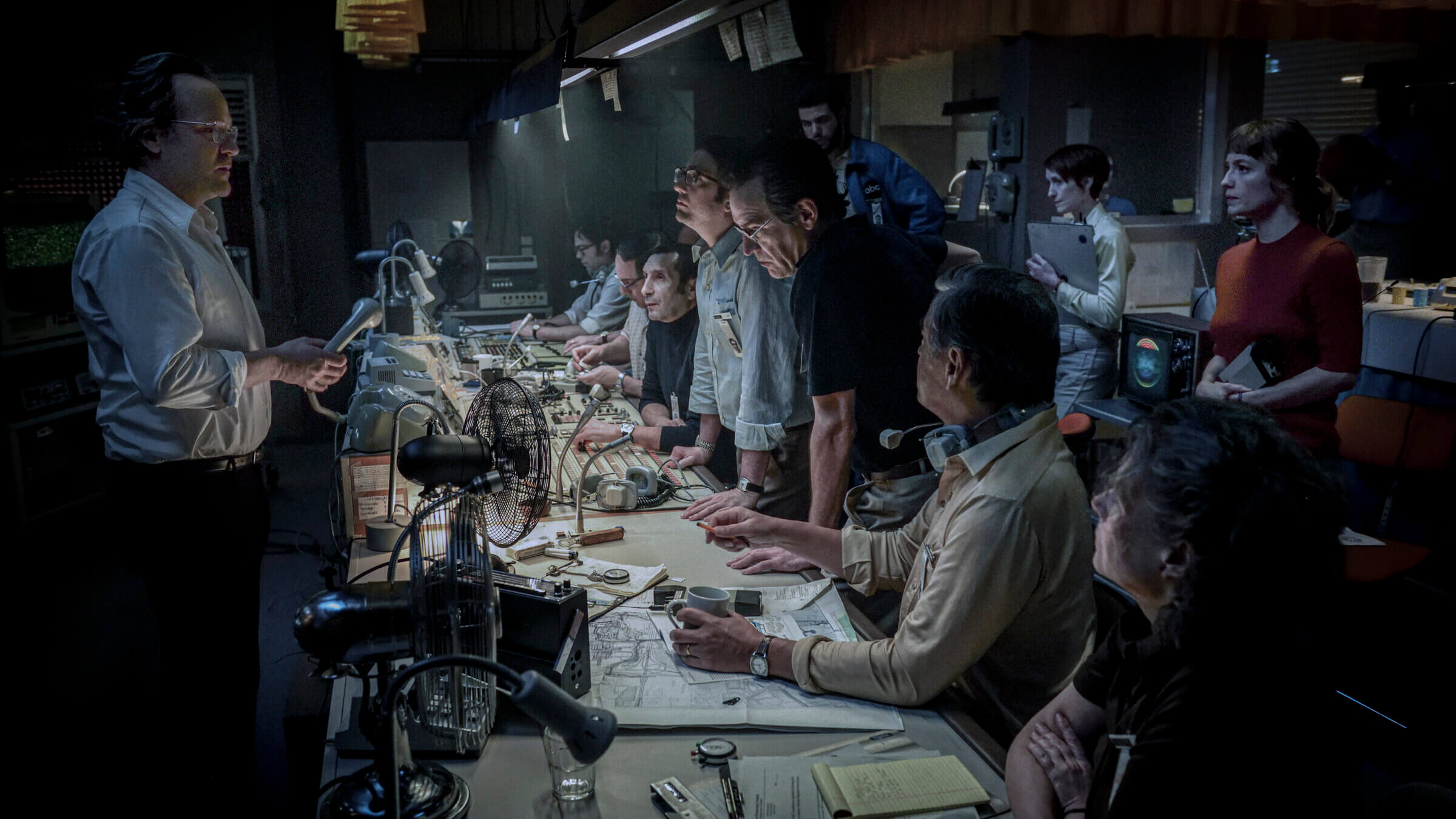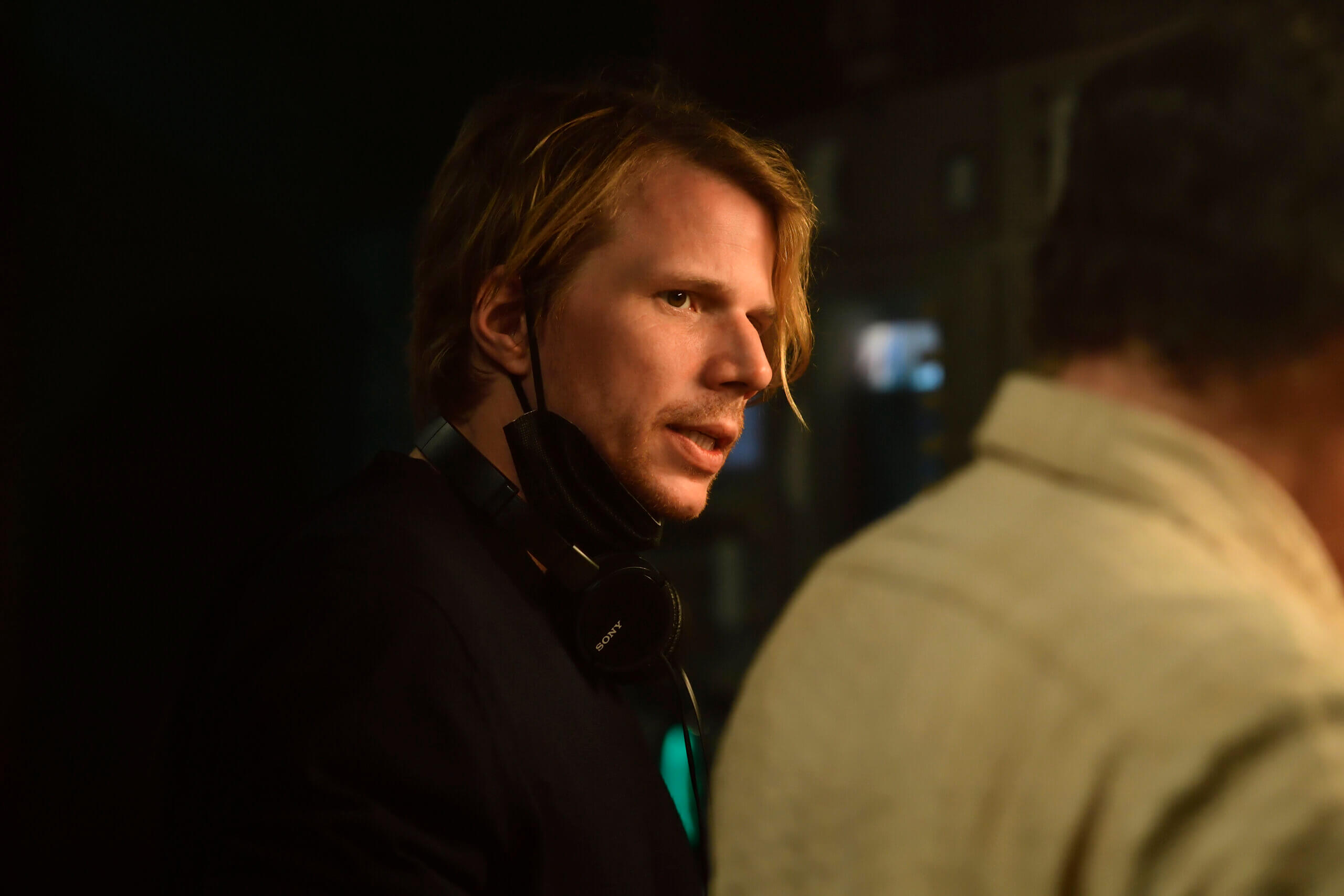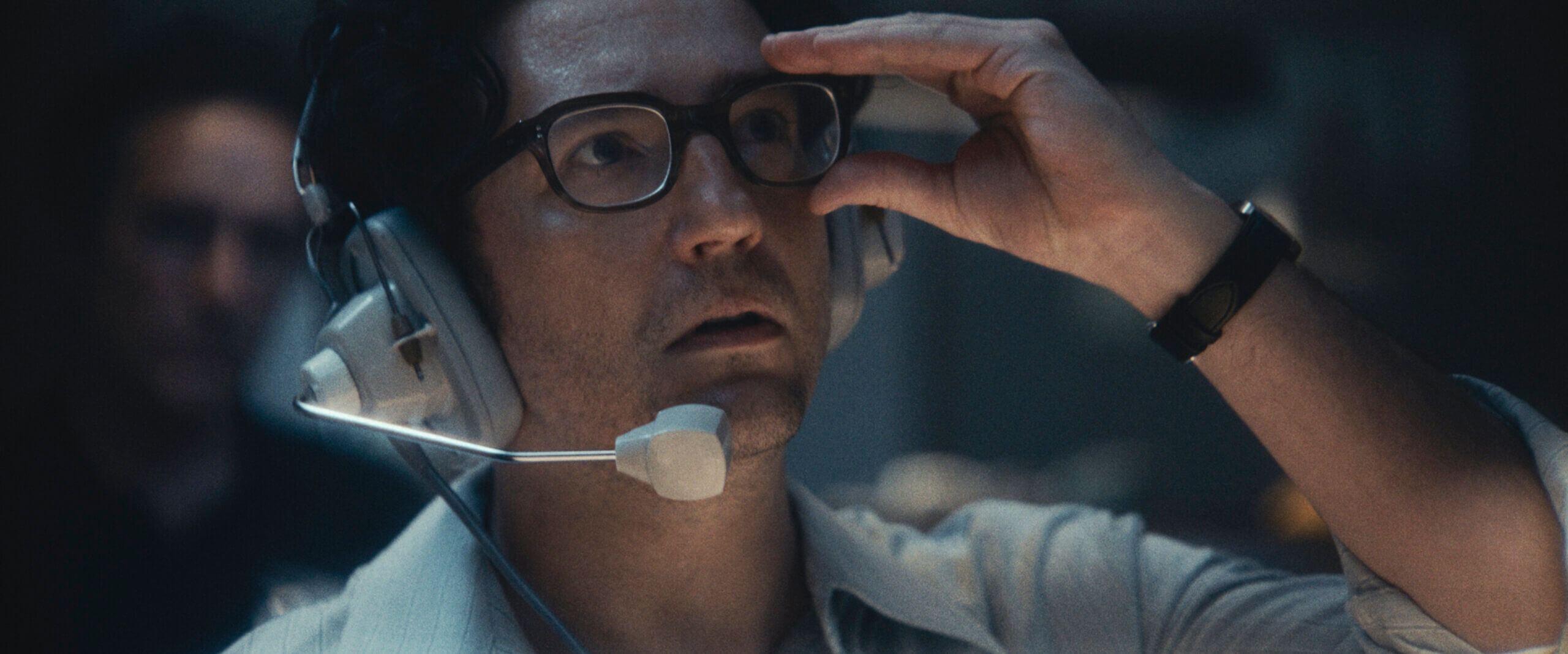Can ‘September 5,’ a film about Israeli hostages in a time of Israeli hostages, survive the news cycle?
Tim Fehlbaum’s film about the Munich massacre is hard to separate from today’s headlines

The cast of September 5, a control room thriller about the 1972 Munich massacre. Photo by ©2024 Paramount Pictures
September 5, director Tim Fehlbaum’s gripping control room thriller about the 1972 massacre at the Munich Olympics aimed to be finished and released by 2022, 50 years after the Palestinian terror group Black September murdered 11 Israeli athletes after a day-long hostage standoff.
But productions take time. Instead, the film, which played at the Venice and Telluride film festivals and is an Oscar contender for Paramount, is coming to theaters in December, while more than 100 Israeli hostages are held by Hamas in Gaza, over 40,000 Palestinians have died in Israel’s response to Oct.7 and the world reels from an unwillingness to see the humanity on both sides of the war.
Fehlbaum had finished shooting, and was in post-production when Oct. 7 brought the conflict back into the headlines.
“What’s happening in the world today will have an influence on how people will see this movie,” said Fehlbaum, a Swiss director who went to film school in Munich, where the 1972 tragedy still looms large. “But our film is about a very specific moment in history and in media history, and about that turning point in media history, and what we hope is that we can provide a way for the audience to engage with questions about our complex media environment through that historical lens.”
Fehlbaum, who wrote the script with Munich native Moritz Binder and American-born screenwriter Alex David, arrived at the idea of telling the story through the literal lenses of the ABC Sports crew after speaking with Geoffrey Mason, the young producer in the Munich studio who oversaw the coverage for 22 hours on September 5, 1972.
The ABC broadcast was unprecedented — the first time a terror attack had been covered in real time — and was witnessed by around 900 million people. Mason’s stories, about dispatching a member of production to pose as an athlete to smuggle equipment into the Olympic village and the German police raiding the studio, had the makings of a compelling, claustrophobic thriller.
From the moment Mason clocks in at 4 AM local time, to the tragic conclusion of his broadcast day, the film’s action stays in the studio complex. The footage from outside is almost entirely archival, including the shots of the Olympic Village and reporter Jim McKay’s interview with Israeli weightlifting coach Tuvia Sokolovsky, who escaped.

To prepare to play Mason, John Magaro, who is Jewish, spoke with Mason and spent two months shadowing sports producers at CBS and ESPN during NFL and NBA games.
“It gave me a great foundation and an enormous sort of sense of confidence in going into the room and calling a live broadcast,” said Magaro.
It was also through Mason — and current chairman of CBS Sports Sean McManus, Jim McKay’s son — that the production gained access to the original footage essential to telling the story.
“It really made us all rise to another level of authenticity and honesty in our performance,” Magaro said.
The real-world telecasts, which included a memorial ceremony with the Israeli team at Dachau, also help contextualize the games’ proximity to the Holocaust.
“This was the first Olympics on German soil since ’36, which was misused for fascist propaganda,” said Fehlbaum.“From this Olympics, Germany wanted to send out a whole new image to the world: one of the liberal Germany.”
Projecting that image had deadly consequences; as ABC’s German translator, Marianne Gebhardt (Leonie Benesch), explains at one point in the film; the Olympic Village had no armed guards patrolling, because the German organizers believed people “didn’t want to be reminded of the last time Germans patrolled fences with guns.”
Marianne stands in for the historical memory of Germany, and, in a key scene, has to contend with Jewish memory as well.
Ben Chaplin plays Jewish ABC Sports executive Marvin Bader, who asks Marianne if her parents, who would have been adults during the war, are still alive.
“Let me guess, they didn’t know either,” Bader says, alluding to the Holocaust. To this, she replies simply, “I’m not them.”
Co-screenwriter Alex David, raised in Manhattan and now living in Frankfurt with his German-born wife, said that when he was brought on to help translate the script from German, it wasn’t clear that Bader was Jewish. With his input, Fehlbaum and Binder fine-tuned the moment with Marianne and made Bader’s background more explicit. (At one point before the crisis, asked to prepare questions about the Holocaust for an interview with gold-medal swimmer Mark Spitz, Bader asks for a moment to “contemplate the demise of my fellow Jews.”)
“It was a nice bonus that I was Jewish,” said David. “You almost feel like now they might look for someone who was Palestinian, if it was made at this point, to be extra sensitive.”
September 5 can be viewed as a companion piece to Steven Spielberg’s Munich, about the Mossad mission to eliminate the architects of the massacre and Kevin Macdonald’s documentary One Day in September, the film that taught Fehlbaum about the tragedy, but it is more narrow in its concerns.
Limiting its action to the pressure cooker atmosphere of a 1970s TV studio, the film doesn’t go deep into the politics of the Israeli-Palestinian conflict, something David says he already sees being called out in reviews. (Scott Feinberg speculated in The Hollywood Reporter that the Toronto International Film Festival rejected September 5 for fear of backlash — Fehlbaum and Magaro say they don’t know the reason why the film didn’t screen there.)
In earlier drafts, David remembers a “lecture” delivered by foreign correspondent Peter Jennings (Benjamin Walker), explaining how the Black September terrorists and their actions weren’t representative of the Palestinian people.
“Before October 7, I was like, ‘Do we really need this? Are people not going to be able to separate these things?’” David said. After Oct. 7, he thinks they “would have done whatever we could to try and smoothly put it in there.”
David says that, were he approached about the project today, he’d be nervous about it, anticipating current events will loom large over its reception and Oscar campaign.
“I would certainly wish that this had come out beforehand,” David said. “I do think there will be a lot of people who won’t be able to see it, or people who do see it, and they can’t get past that.”
For Magaro, there’s a bigger lesson, evident in the film’s final beats, when his character meets with his boss Roone Alredge (Peter Sarsgaard). Magaro, as Mason, says that the day was a “catastrophe.” Alredge, instead sees success: more people tuned into their station than the moon landing and that Mason will be running the show tomorrow too.
“Doing this film has really changed the way I look at journalism,” said Magaro. “There aren’t a lot of careers where you can be promoted because of tragedy.”

In interviews, Magaro has likened the film’s approach to journalism, arguing that it strives to be objective and sideline questions of right and wrong.
The meticulous recreations do little to editorialize about what happened, but the facts of the day — that the graphics department magnified small headshots of the hostages for broadcast while Black September terrorists appeared menacing and masked on the Israel team quarters’ balcony — may well be perceived, against its creators’ wishes, as a political statement in a war of narrative already deeply woven into the film.
Sarsgaard, as Alredge, tells his crew it’s imperative for them to give viewers the details of the “people whose lives are at stake” and fights for ownership of the story over the news team in New York. Chaplin, as Bader, later asks him, should a hostage be shot live on television, whose story it would really be — theirs or the terrorists.
“This is not making a comment about the geopolitical crisis that is ongoing,” said Magaro, noting the conflict can be dated to 1948 or earlier. “It’s strange to me that it takes October 7, these huge tragedies, to collectively remind us it’s still going on.”
Magaro said the film is instead about the birth of “sensational media that we’re saturated with 24/7” and that we have become desensitized to.
“Everyone’s very hot right now on what’s going on in Israel and Palestine,” Magaro said. “But I sadly think that it’s already fading, the concern for it. And I think once the next big tragedy comes along, it will probably fade even deeper into the background. And what’s sad about that is it makes it so much harder for people to find clarity and to find solutions.”
















